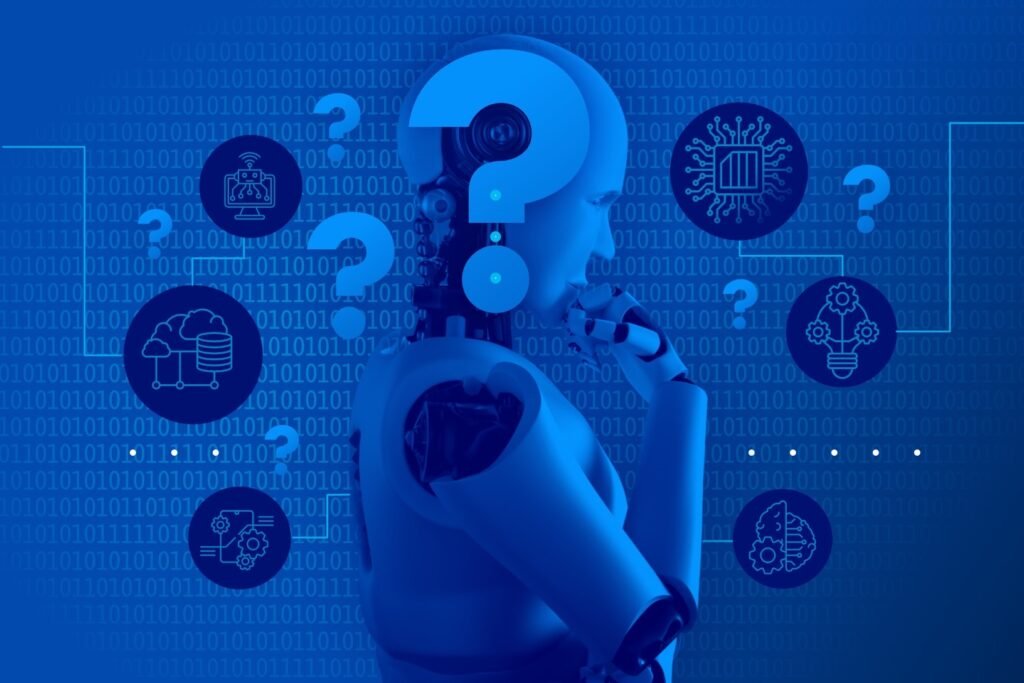
In today’s fast-paced digital landscape, businesses are increasingly relying on Artificial Intelligence (AI) and Machine Learning (ML) to drive performance marketing strategies. These powerful technologies are transforming the way brands reach and engage with their audiences. By harnessing the power of AI and ML, marketers are able to analyze massive datasets, predict customer behavior, and optimize campaigns in real time, ultimately making their strategies more efficient and effective. With the ability to personalize customer experiences and automate tasks, AI has reshaped the role of marketers, allowing them to focus more on creativity while using data-driven insights to improve campaign outcomes. As businesses continue to evolve, AI-powered performance marketing is at the heart of this transformation, offering immense potential for growth and innovation in the marketing world.
Drivers of AI-Powered Performance Marketing
1. Enhanced Data Insights
AI and ML are changing the game when it comes to data analysis. These technologies can process vast amounts of data at lightning speed, uncovering insights and patterns that would be impossible for humans to spot. Marketers can leverage this data to understand customer preferences, behaviors, and trends on a much deeper level, enabling more precise targeting and campaign personalization. For example, predictive analytics can help marketers anticipate future consumer actions, allowing them to tailor campaigns that resonate with customers before they even make a decision.
2. Real-Time Campaign Adjustments
Gone are the days of waiting for campaign results to come in before making adjustments. With AI, marketers can monitor campaigns in real-time and tweak them for optimal performance on the fly. This dynamic approach ensures that marketing efforts are always fine-tuned to meet the audience’s needs. Tools like dynamic creative optimization can change ad components instantly based on real-time performance, making sure the content is always fresh and engaging.
3. Cost Efficiency and Resource Allocation
One of the most significant benefits of AI in performance marketing is its ability to save costs and streamline resource allocation. AI-powered tools can automate repetitive tasks like audience segmentation, bid management, and content personalization, allowing marketers to free up time for more strategic, high-value work. Furthermore, AI can analyze which channels and strategies provide the best return on investment, ensuring that marketing budgets are spent wisely.
Trends and Challenges in AI-Powered Performance Marketing
Trends:
- Personalized Experiences at Scale: AI is enabling marketers to deliver hyper-personalized experiences to large audiences, improving customer engagement and satisfaction. This level of personalization, which was once only possible on a one-to-one basis, is now scalable, allowing brands to create meaningful connections with each individual.
- AI-Powered Automation: As AI technologies become more advanced, automation will play a central role in performance marketing. Companies are already adopting AI agents to handle routine tasks and provide real-time, personalized customer interactions, making marketing efforts more efficient and effective.
Challenges:
- Data Privacy Concerns: While AI’s data-driven nature offers immense benefits, it also raises concerns about consumer privacy. Marketers need to be cautious about how they collect, store, and use consumer data to avoid breaches of trust and comply with strict regulations.
- Complex Integration: For many businesses, integrating AI into existing marketing platforms can be a daunting task. It requires a substantial investment in both technology and training, which can be a barrier for smaller companies or those with limited resources.
Future Outlook
- Wider Adoption of AI Tools: As AI tools become more accessible and user-friendly, more businesses will begin to incorporate them into their marketing strategies, regardless of their size or industry.
- Greater Focus on Customer Experiences: AI will continue to drive highly personalized customer interactions, allowing brands to deliver tailored experiences that resonate deeply with consumers, fostering greater loyalty and engagement.
- Rise of AI-Driven Platforms: The demand for AI-powered marketing solutions will lead to the growth of platforms that cater specifically to businesses looking to implement advanced technologies into their strategies.
- Ethical AI Use: As AI becomes more integrated into marketing, the focus on ethical AI use will increase, with businesses placing a greater emphasis on transparency, data security, and consumer consent.
- Shift in Marketing Roles: Marketers will need to adapt and develop new skills to work effectively with AI technologies. The future of marketing will require a combination of creative expertise and data-driven analysis to maximize the potential of AI.
- Better Measurement of ROI: With AI’s ability to measure and optimize campaigns in real time, marketers will gain a more accurate understanding of their return on investment, allowing them to make better decisions about where to allocate resources.
- Cross-Channel Integration: AI will help marketers seamlessly integrate strategies across different channels, providing a more cohesive and consistent experience for consumers, no matter how they engage with the brand.
- Smarter Decision Making: AI will empower marketers to make faster, smarter decisions based on real-time data, allowing them to quickly adjust strategies and maximize campaign performance.
- Exploring New Markets: With AI’s predictive capabilities, businesses will be able to enter new markets with targeted, data-driven strategies that are tailored to the needs of local customers, boosting their chances of success.
- Constant Innovation: The rapid development of AI will drive continuous innovation in performance marketing, creating new opportunities, tools, and methodologies for marketers to experiment with and improve their campaigns.
Keywords
- AI in Marketing
- Machine Learning in Digital Advertising
- Personalized Marketing
- Real-Time Campaign Optimization
- Data-Driven Marketing Strategies
Description
Explore how AI and machine learning are reshaping the landscape of performance marketing by providing deeper insights, optimizing campaigns in real-time, and automating tasks. Learn about the latest trends, challenges, and the future of AI-powered marketing.
